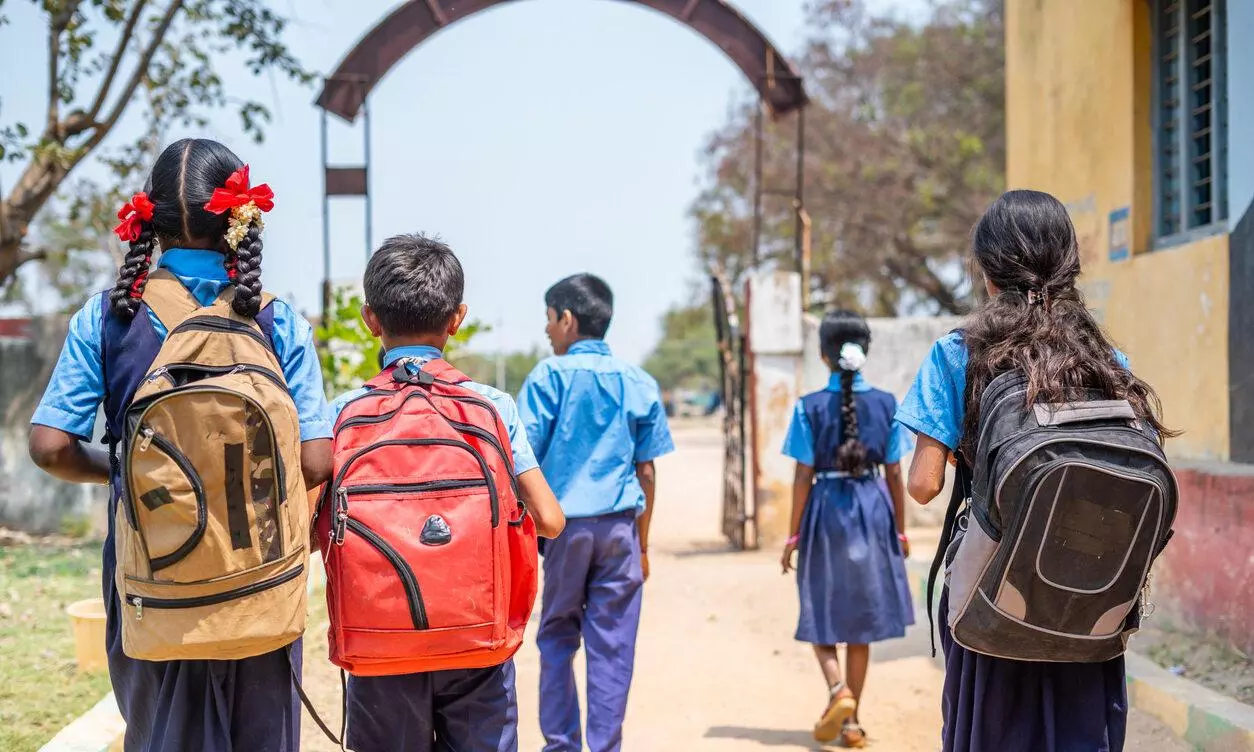
Dalit teen’s assault raises alarm, TN schools frisk students to prevent caste crimes
Recent attack on Dalit student has also amplified calls to implement recommendations of Justice Chandru Committee to prevent caste-based violence on school campuses

The recent attack on a Dalit student in Tamil Nadu’s Tirunelveli district by a four-member gang has prompted several schools to frisk students for weapons to prevent caste-related incidents on campuses. The assault has also amplified demands to implement recommendations made by former Justice K Chandru to prevent the persecution and abuse of Dalit students in educational institutions.
Incidentally, the victim, 18-year-old Chinnadurai, a first-year B.Com student, was brutally attacked by his schoolmates from a dominant caste in 2023.
While the district police have maintained that it is unclear whether the second attack on Chinnadurai was caste-related, the assault is the third such instance of violent behaviour involving young students or mobs in the southern districts of the state within the last two months.
Justice K Chandru’s report
Following the attack on Chinnadurai, the MK Stalin government had formed a one-man committee headed by former Justice Chandru to probe the incident and suggest ways to prevent caste-based violence in schools.
In his 600-page report, Justice Chandru said incidents of violence by teenagers, including students in southern Tamil Nadu, reflected the deep-rooted caste discrimination within the state’s education system, challenging the state’s long-held social justice credentials.
However, the recommendations have not been implemented so far.
Also read: TN: Menstruating Dalit girl writes exam outside classroom, principal suspended
Prevalence in southern TN
Sources in the Social Defence Department told The Federal that 22 minors from southern districts are currently housed in the Tirunelveli observation home for their involvement in violence and caste-based attacks against other minors.
Chinnadurai was first attacked in 2023 by a group of schoolmates who allegedly targeted him for excelling academically. The group entered his home, assaulted him, and injured his then 14-year-old sister when she tried to protect him. The attack was reportedly motivated by jealousy over his academic performance. In the second attack on Wednesday (April 16), he was lured to a secluded spot and beaten by a gang.
Earlier this week, a Class 8 student in Tirunelveli attacked his classmate with a sickle over a dispute over a pencil. Before that, Thoothukudi Police registered a case involving two minors who attacked another student on a bus using a billhook. The victim’s family alleged a caste motive, and the injured student was unable to attend his public exam due to hospitalisation.
Schools on alert
Several schools in Tamil Nadu’s southern districts have now begun frisking students and checking their bags to prevent them from carrying weapons. Chief Educational Officer of Tirunelveli, M Sivakumar, told the media that bags would be checked daily by teachers, and banned items, including mobile phones, pen drives, memory cards, and sharp objects, would be confiscated.
Also read: How wristbands keep caste lines alive among students in Tamil Nadu
“Appropriate action, including the filing of police cases, will be taken against students if any banned article is seized within the school premises,” Sivakumar said.
Ban caste markers: Activists
Meanwhile, many educationists and social activists have criticised the state government for delaying the implementation of the one-man commission’s recommendations, including the banning of caste-identifying symbols like coloured threads and tilaks worn by students.
Speaking to The Federal, child rights activist M Andrew Jesuraj said that implementing the commission's recommendations would be a first step to eliminate caste-based discrimination and violence among juveniles.
“We cannot end caste discrimination and violence overnight. It’s a conscious, ongoing process that takes time. But that doesn’t mean we can’t begin with a few immediate steps. An inclusive society blooms in classrooms and public spaces where children and youth learn values,” Jesuraj said.
Key role of parents, teachers
He added that parents also have a key role in educating children about social equality. “When parents proudly talk about their caste identity, it becomes difficult for children to grasp the seriousness of discrimination.”
Also read: Six booked for assaulting SC teen, making him fall at their feet in Madurai
Justice Chandru declined to comment on the delay in implementing his recommendations. School Education Minister Anbil Mahesh Poyyamozhi was also unavailable for a comment, but sources told The Federal that he is expected to introduce new measures to curb caste-based violence among students during the upcoming Assembly session on April 24.
In his report, Chandru mentioned that the involvement of school children in caste-based offences is a worrisome trend that must be addressed decisively.
The report pointed out that teachers had refused to acknowledge or address caste in classrooms. He also recommended that the State Council for Education, Research, and Training (SCERT) give teachers a sound theoretical foundation on social justice and the context and evolution of caste.
Strict disciplinary action must: Report
‘’Teachers should be equipped to train students to analyse and question issues related to caste and social justice. Circulars issued over the last 10 years have scarcely included any directives on how to handle caste-related issues by the authorities,” the report said.
Also read: Dalit teen brutally attacked in TN, fingers cut off in alleged caste violence
Recommendations include that seating arrangements in classrooms must be in alphabetical order, the attendance register should not have caste columns, and teachers should not call students by their caste names. Any breach should be met with strict disciplinary action.
He also called for the appointment of School Welfare Officers in secondary schools to monitor instances of caste, sexual, or ragging offences, and to conduct and monitor sensitisation programmes.

